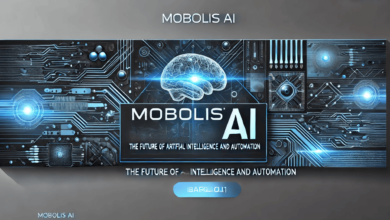AI for Content Audits: Revolutionizing the Way We Evaluate Digital Content

In today’s digital age, content is king. Websites, blogs, and e-commerce platforms are constantly updating and creating new content to engage audiences and drive traffic. But as the digital landscape grows, so does the need for efficient ways to evaluate and optimize this content. Enter artificial intelligence (AI) – a tool that is transforming how businesses and marketers conduct content audits. AI for content audits is becoming increasingly popular due to its ability to automate processes, improve efficiency, and provide data-driven insights.
The Need for Content Audits
Content audits are essential for understanding how well your digital assets are performing. They help you assess whether your content aligns with your brand, if it meets user intent, and if it supports your overall business goals. Without regular audits, websites risk having outdated, underperforming, or irrelevant content. Traditionally, content audits involved manually reviewing each piece of content, tracking performance metrics, and identifying areas for improvement. While this approach works, it is time-consuming and can miss crucial insights.
The Role of AI in Content Audits
AI is quickly changing the game when it comes to content audits. By automating various aspects of the auditing process, AI not only saves time but also provides more accurate and insightful results. AI-driven tools can crawl websites, assess content quality, and generate recommendations that can help improve content effectiveness. These tools analyze vast amounts of data, recognizing patterns and trends that human auditors might miss. Here’s a closer look at how AI can transform content audits:
Automated Content Inventory and Performance Analysis
One of the biggest challenges in content audits is managing large volumes of digital content. AI-powered tools can crawl your website and create an automated inventory of all your content, including blog posts, product descriptions, videos, images, and more. This process ensures that no piece of content is overlooked.
AI can also track key performance metrics for each piece of content, such as page views, bounce rates, time spent on page, and conversion rates. By analyzing this data, AI can identify which content is performing well and which is underperforming. This level of automation saves significant time compared to manual tracking and analysis, allowing teams to focus on optimizing content rather than collecting data.
Quality Control and Content Evaluation
Content quality is crucial to both user experience and search engine optimization (SEO). AI tools can evaluate the quality of your content by analyzing factors like grammar, readability, keyword usage, and sentence structure. These tools can identify whether your content is well-written, engaging, and aligned with your target audience’s needs.
Moreover, AI can assess whether your content follows SEO best practices. From optimizing keyword density to ensuring appropriate meta descriptions and alt text for images, AI can ensure that your content is fully optimized for search engines. This helps improve your search rankings and enhances your content’s visibility online.
Identifying Content Gaps
AI can also help identify content gaps on your website. By analyzing user behavior and search queries, AI can determine what topics are of interest to your audience but are currently missing from your website. For example, if a competitor’s site covers a specific topic that your site does not, AI can flag this as a potential content gap.
By uncovering these gaps, AI empowers businesses to create content that better meets user needs and enhances their overall digital strategy. Additionally, AI can provide recommendations for creating new content based on trending topics, search intent, and audience preferences.
Actionable Insights and Optimization Suggestions
AI doesn’t just highlight problems – it also offers solutions. Based on its analysis, AI tools can generate actionable recommendations for improving content. This might include updating outdated blog posts, combining similar articles, or even suggesting new content formats that could resonate with your audience more effectively.
For example, AI might suggest adding video content to a blog post if it sees that videos are driving more engagement and conversions. It could also recommend tweaking headlines or restructuring articles to improve readability and performance. By offering these insights, AI makes the optimization process more data-driven, precise, and efficient.
Scalability and Efficiency
One of the primary benefits of using AI for content audits is scalability. For businesses with extensive websites or blogs, manually auditing hundreds or thousands of pieces of content can be overwhelming. AI can easily scale to handle large amounts of data, making it suitable for both small and enterprise-level websites.
The efficiency AI brings is unmatched. While traditional audits can take days or even weeks, AI can process the same amount of data in a fraction of the time. This allows businesses to conduct content audits more regularly, ensuring that their content remains fresh, relevant, and optimized.
Enhanced Accuracy and Reduced Human Error
Content audits, when done manually, are susceptible to human error. Fatigue, oversight, and bias can lead to missed opportunities or incorrect conclusions. AI, on the other hand, analyzes data objectively and with a high degree of accuracy. Machine learning algorithms allow AI tools to continuously improve as they process more data, ensuring that your content audits are always accurate and up to date.
Additionally, AI can spot inconsistencies and errors that a human auditor might overlook, such as broken links, missing metadata, or duplicate content. By catching these issues early, AI helps maintain the integrity of your website and ensures a better user experience.
Cost-Effective and Resource-Efficient
Though AI tools for content audits often require an initial investment, they can save businesses significant time and money in the long run. By automating repetitive tasks and improving the efficiency of audits, AI reduces the need for extensive human labor. This frees up valuable resources that can be better spent on other strategic initiatives, such as content creation and marketing.
Conclusion
AI for content audits is not just a passing trend – it’s a game-changer. By automating content analysis, enhancing accuracy, providing actionable insights, and scaling audits for large websites, AI is making content audits more efficient and effective than ever before. Whether you’re a small business or a large enterprise, leveraging AI in your content audit process will give you a competitive edge in the digital landscape. As content continues to play a critical role in driving online success, AI offers a smart, data-driven approach to ensuring that your content is always performing at its best.



